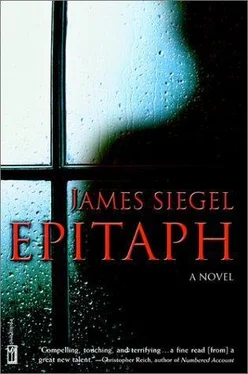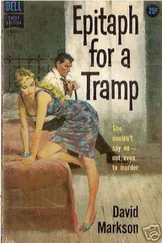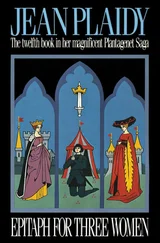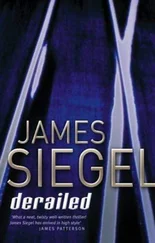James Siegel - Epitaph
Здесь есть возможность читать онлайн «James Siegel - Epitaph» весь текст электронной книги совершенно бесплатно (целиком полную версию без сокращений). В некоторых случаях можно слушать аудио, скачать через торрент в формате fb2 и присутствует краткое содержание. Жанр: Триллер, на английском языке. Описание произведения, (предисловие) а так же отзывы посетителей доступны на портале библиотеки ЛибКат.
- Название:Epitaph
- Автор:
- Жанр:
- Год:неизвестен
- ISBN:нет данных
- Рейтинг книги:4 / 5. Голосов: 1
-
Избранное:Добавить в избранное
- Отзывы:
-
Ваша оценка:
- 80
- 1
- 2
- 3
- 4
- 5
Epitaph: краткое содержание, описание и аннотация
Предлагаем к чтению аннотацию, описание, краткое содержание или предисловие (зависит от того, что написал сам автор книги «Epitaph»). Если вы не нашли необходимую информацию о книге — напишите в комментариях, мы постараемся отыскать её.
Epitaph — читать онлайн бесплатно полную книгу (весь текст) целиком
Ниже представлен текст книги, разбитый по страницам. Система сохранения места последней прочитанной страницы, позволяет с удобством читать онлайн бесплатно книгу «Epitaph», без необходимости каждый раз заново искать на чём Вы остановились. Поставьте закладку, и сможете в любой момент перейти на страницу, на которой закончили чтение.
Интервал:
Закладка:
Death didn't become her.
Now the hard part. The murder hadn't taken long- cleaning it up would. The white enamel bathtub was waiting for her body; he'd have to slice it in sections and drain the blood from it. Not exactly a walk in the park. Then everything into the stove-nicely stoked for her faithful heart and pretty little head. Preparation was his strong suit, he thought. And given the relative ease with which he'd managed so far, he was beginning to feel the satisfaction of a job well done. And beginning to feel something else, of course, too. The power and burdens of God.
Once upon a time, Marcel moved to Paris.
He had a thriving practice.
He had a wife.
He had two sons.
But what he didn't have on the night of May 12, 1939, was an excuse.
He was in the house of Aime Hausee's mother. And Aime Hausee-the daughter-was dead. He'd overshot her with morphine, a clumsy mistake. Of course, he'd been a wee bit preoccupied at the time. Mainly with staring down at her teeny breasts as he got ready to pull her wisdom tooth. The fact is, she should have gone to a dental surgeon-impacted teeth weren't exactly his specialty.
An hour after he left, the mother, the hysterical bitch, had called him up screaming. Her daughter wasn't re- sponding-not to her name, not to long and repeated prodding, not to anything. Caught in the middle of his favorite dinner, veau a la creme with scalloped potatoes and a good Cabernet, he'd had to leave it half eaten and rush out into the night. Once he'd arrived, still hungry, still irritated, he'd told the weeping mother to wait downstairs.
Aime-his wife's dressmaker, and not at all a bad one- was not dead yet. She was in the more remote stages of coma, remote enough so that there was nothing he could do for her, nothing that is except loosen her nightgown, which he'd already done-loosened it enough so that her little breasts were now more or less exposed.
This would be his fourth. Imagine that.
And this one more or less an accident. Not like Madame Debaure for instance-who'd run a dairy cooperative, who'd entertained Marcel in her bed, but who, in the end, had refused to go along with his plans concerning her money. Not like poor Frascot either, who'd had the unfortunate luck to know about Madame Debaure, and worse yet, the dumb effrontery to try and profit from it. And of course, this one was nothing at all like Lousette. Four now. He had four, and the truth was, it was getting easier all the time.
He grasped the bottom of her powder blue nightgown and lifted it slowly up, up, up… underneath she wasn't wearing a thing. Look at that. He was struck dumb by the smoothness of her skin, by the color as well, pale as skimmed milk, except, of course, in her cleft where the color was rosy pink. He wondered how long the grief- stricken mother would wait downstairs before she'd be back up knocking at the door, yakking at him, blaming him too no doubt.
Ah well. He separated her legs, separated them in a wide welcoming V as he moved his mouth to her nipples warm as sand.
Then he literally fucked her to death.
Once upon a time in the city of Paris, the good Dr. Petoit went house hunting.
He found himself staring at 21 Rue la Soeur.
Then he found 21 Rue la Soeur staring back. He was quite sure of this, absolutely positive. The house was looking back at him. And it was talking too. It was telling tales out of school. Hidden, beastly, dark little tales. He didn't know exactly what they were yet, not the details, but he knew they were filled with blood and fury. Which is what most of Paris was filled with those days.
It was July 1941, and Paris was occupied. Paris was occupied and so was Marcel. He was occupied with this house. Twenty-one Rue la Soeur. It had housed nobility, no question, princesses and dukes and regents and chancellors. It was four and one half stories high; it had twelve gaunt windows. It was yakking away at him.
He stood across the street in its shadow, and though it was the hottest part of July, in the shadow of the house it was frigid as winter. This was a clue, he thought, a hint. He began to understand things standing there across the street from the house. Remarkable things. Things brutal and fierce and captivating. He understood that the tales weren't finished for instance. They weren't finished. The house needed him to finish them. That's why it was talking to him. That was what it was trying to tell him.
This is what he found when he explored the house: It had a huge kitchen in the basement, and in the huge kitchen a huge drain that led directly into the Paris sewers. In the courtyard of the house there was an office, and near the office a triangular room with one false door and an aperture in the wall where you could see in without anyone seeing out. He could do a lot with the place. No question. He could do just about everything with it.
The house would talk to him and he would listen.
Even on the day he bought the house he stood there again, ears cocked, stuck in its shadow again. He drew odd stares: from the passing lorries carrying German platoons to the Eastern Front, from the Jewish couple next door who'd negotiated the purchase, even from the two members of the French Gestapo who were on their way to headquarters just a few blocks down.
But he didn't move, not until he'd collected all the whispers and laid them end to end till they made sense. Then he rubbed his hands together and answered yes. Yes. It was just as he'd thought-the house had a place for him after all.
Once upon a time Marcel got his first customer.
He'd only put the word out several days ago, like casting a gleaming lure into the middle of a deep black pond, waiting only for something to bite hard. Now something had.
Marcel waited for him in 21 Rue la Soeur, staring through the window at the bare branches of the ash trees that lined the opposite sidewalk from corner to corner. It was a bitter night, the eighth day of Christmas according to the calendar. And why not? Wasn't Marcel about to receive a gift? Not eight geese a-cackling though; more like the golden egg.
Finally he saw him, trudging forward at the far end of the block, just a small dot beneath the trees. Gushenow the furrier. Gushenow the Jewish furrier, who by his own best guess had but several weeks before deportation to the East. But he didn't intend to be there when they came for him. He was going south. Petoit had promised to get him there-all the way to Argentina. They'd met once to settle on the price-five hundred thousand francs, steep for sure, but then what was a life worth? Marcel hadn't needed much time to persuade him-Gushenow had said yes almost immediately. Besides, he was leaving Gushenow more of where that came from, wasn't he? Much more-over one million francs that Gushenow had carefully sewn into the lining of his coat and hidden in the handle of his suitcase. And all those furs-silver sable, black lynx, red fox-that Marcel promised to send after him. All this Gushenow was carrying with him now, flitting between the tree trunks like a fat squirrel burdened with nuts. Marcel opened the latch, then walked back into the living room to wait for him. Seconds later, the door squeaked, creaked open. Petoit… Gushenow whispered, Petoit, are you in there…? Come in, Marcel answered. Gushenow was flushed and sweating, animal fur enveloping animal fear. Marcel could smell it. I have the pictures, Gushenow whispered. I didn't forget… Pictures…? Yes. For the passport. Oh. Of course. The passport. Marcel remembered. He offered Gushenow, fat, flushed, furrier Gushenow, a seat. But Gushenow fumbled for the pictures and handed them over. Will they do? he wanted to know. They're fine, Marcel said, barely glancing at them. Oh good… good. Gushenow wiped his forehead with a handkerchief. It was very hard for me, he told Marcel. Hard? Saying goodbye to my wife. Marcel patted him on the back and said, I understand. Not telling her. That was hard. Hardest thing I've ever done. You must understand the risks, Marcel explained. The dangers. I do. But all the same… Do you have everything? Marcel asked. For instance, the money? Yes, Gushenow whispered. But I have a question. About the currency. Currency? The currency in Argentina. What do they use there? Shillings. They use shillings in Argentina. Gushenow blinked. Isn't that what they use in England? I'm sure they use that in England… And Argentina, Marcel explained. England and Argentina both. Gushenow was more or less unconvinced; Marcel could plainly see that, but he also knew Gushenow was too nervous to care. What do I do now? Gushenow asked. Wait. That's all. Marcel reminded him about all the work he'd put into this, all the meticulous planning. Gushenow had to put his faith in him-after all, that's what he'd paid him for, wasn't it? Gushenow had to agree. But all the same, he wanted to know when they'd be leaving. It's hard to say, Marcel told him. There are factors. For instance… the moon… Moon? But I don't believe there is a moon tonight. Just my point, Marcel explained. With so little light, the patrols will be more diligent than usual. We'll have to pick our time carefully. Okay, Gushenow said. But isn't there anything for me to do? Well, Marcel explained, now that you mention it, there is one thing we've forgotten. What is it? Gushenow asked, looking nervous, that is, more nervous than usual. Nothing really. Just your vaccination. Vaccination? Against smallpox. I've got to vaccinate you against smallpox. That's the rule in Argentina. But I've already been vaccinated against smallpox, Gushenow whined. Why do I have to have another? There's typhus too, Marcel explained. Argentina insists on both. Gushenow pouted. Is Marcel sure? Couldn't he just say that he was vaccinated? Marcel frowned, a good frown too, one he'd practiced in front of mirrors from time to time. Just as he'd practiced looks of concern, of passion and joy and paternal warmth, all of them acted out in front of the looking glass till he'd gotten them more or less down. There's something called professional ethics, Marcel said. Besides, typhus is a problem in Argentina. Did Gushenow really want to run the risk of catching it? Gushenow sighed, resigned. Where do I have to get it? he asked timidly. There's a room in the courtyard… No. Gushenow shook his head. I meant what part of the body? Could he have it in the backside perhaps? It hurt him when they gave it to him in the arm. Of course, Marcel said reassuringly. Wherever you want it. Gushenow stood up. Where's this room then? I might as well get it over with. Marcel led him out of the drawing room toward the back of the house. They passed through the back door into the closed courtyard where a cat shrieked at them from the top of an ivy-shrouded wall. Where are we going? Gushenow asked. There. Marcel pointed to an outcrop of brick and mortar that was fastened to the back wall like coral. My office. They entered a small doorway: several finely polished chairs, a recently waxed desk, a glass bookcase with a stuffed mongoose sitting on top of it. Further down, Marcel said, moving off into a dimly lit hallway. Then, suddenly, they were in a room. What a strange place, Gushenow said, wrinkling his nose as if in the presence of bad cheese. It's a triangle. Yes, Marcel said. Three sides. Should I lie down? On that table? Good idea, Marcel said, then began rummaging in the black bag that he'd left by the doorway. You will be gentle, won't you? Of course, Marcel said. As gentle as a lamb. But isn't that needle a little large? Gushenow said now, staring at the syringe that Marcel was holding up to the ceiling. Not at all. Gushenow had already loosened his pants-they were lying bunched around his knees. He rolled onto his stomach and shut his eyes. Marcel began to push the needle into Gushenow's left buttock and in fact had it halfway in when Gushenow asked him about Argentina. Argentina? Yes, Gushenow said. Could Marcel talk to him about it? About it? About Argentina. About what Argentina's like. Anything at all. Well, Marcel said. They have coconuts there. Ahh… coconuts… Argentinians have to watch out for the coconuts. They have to remember to look up for them because the coconuts can drop on their heads and hurt them. I'll remember that, Gushenow said. What else? Beaches. Nice beaches? Very nice beaches. White and sandy beaches. And the people there? The people? Are they nice? Are they a friendly sort of people? Yes. Very friendly. No Nazis? No Nazis in Argentina? No, Marcel said, feeling Gushenow tremble. No. No Nazis.
Читать дальшеИнтервал:
Закладка:
Похожие книги на «Epitaph»
Представляем Вашему вниманию похожие книги на «Epitaph» списком для выбора. Мы отобрали схожую по названию и смыслу литературу в надежде предоставить читателям больше вариантов отыскать новые, интересные, ещё непрочитанные произведения.
Обсуждение, отзывы о книге «Epitaph» и просто собственные мнения читателей. Оставьте ваши комментарии, напишите, что Вы думаете о произведении, его смысле или главных героях. Укажите что конкретно понравилось, а что нет, и почему Вы так считаете.












